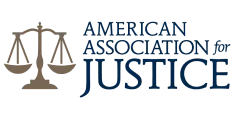In a landmark ruling that could reshape the ski industry, a jury has awarded $12.4 million to Annie Miller, a 16-year-old skier who was paralyzed after falling from a chairlift at Crested Butte Mountain Resort in 2022. The verdict marks a significant defeat for Vail Resorts, the resort’s owner, and challenges the long-standing legal protection that ski areas have enjoyed through liability waivers.
The Lawsuit and Verdict
Annie Miller was on a ski trip with her church group when she slipped from the Paradise Express chairlift. Her father attempted to hold her, but she ultimately fell 30 feet, sustaining a spinal cord injury that left her unable to walk.
The Miller family’s lawsuit centered on the argument that the lift operators were negligent. They claimed the operators failed to stop the chair after noticing that Miller had not loaded the lift properly.
For decades, ski resorts have used liability waivers and the Colorado Ski Safety Act to protect themselves from lawsuits. Vail Resorts initially relied on these defenses, arguing that the signed waivers absolved them of responsibility. However, the Colorado Supreme Court ruled in the Miller case that these waivers do not provide blanket immunity for all negligence claims.
This decision sent the case back to a lower court, where a jury heard the family’s arguments. After nine days of testimony and a day of deliberation, the jury found Crested Butte Mountain Resort negligent, determining that the lift attendants violated industry safety standards. The jury’s initial award of $21.1 million was reduced to $12.4 million due to Colorado’s legal caps on certain types of damages and the jury’s finding that the resort was not entirely at fault.
A New Precedent
This verdict is a groundbreaking development. Legal experts say it is the first time a jury has ruled against a ski resort based on its failure to meet specific safety standards. While liability waivers have never protected resorts from intentional or reckless misconduct, they have historically been effective in dismissing claims of simple negligence.
While the ski industry often highlights that chairlifts are an extremely safe mode of transportation, this case brings to light the importance of operator training and accountability. The outcome could lead to significant changes in how ski areas handle liability and prioritize safety, potentially impacting insurance costs and operations across the industry.






